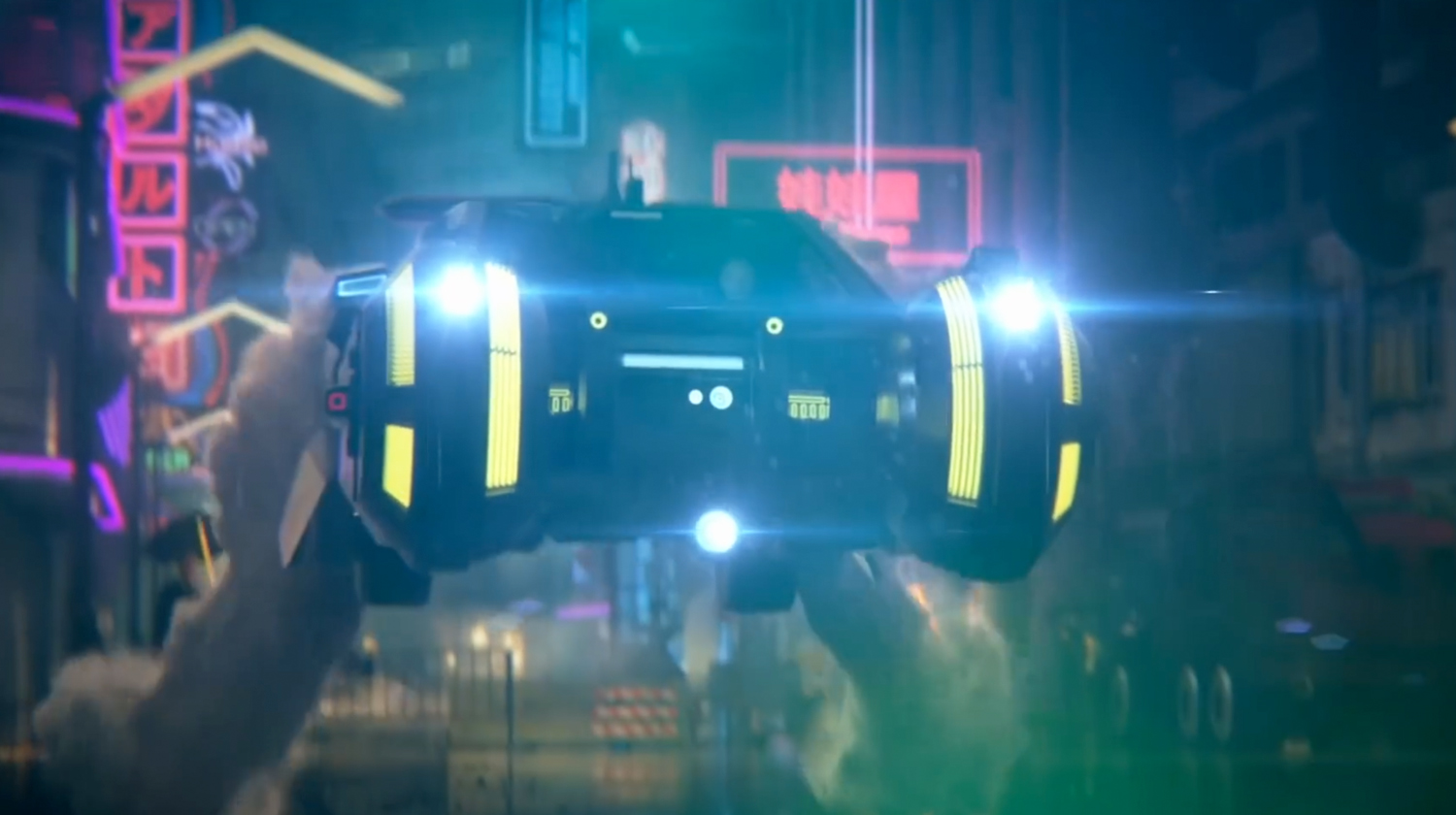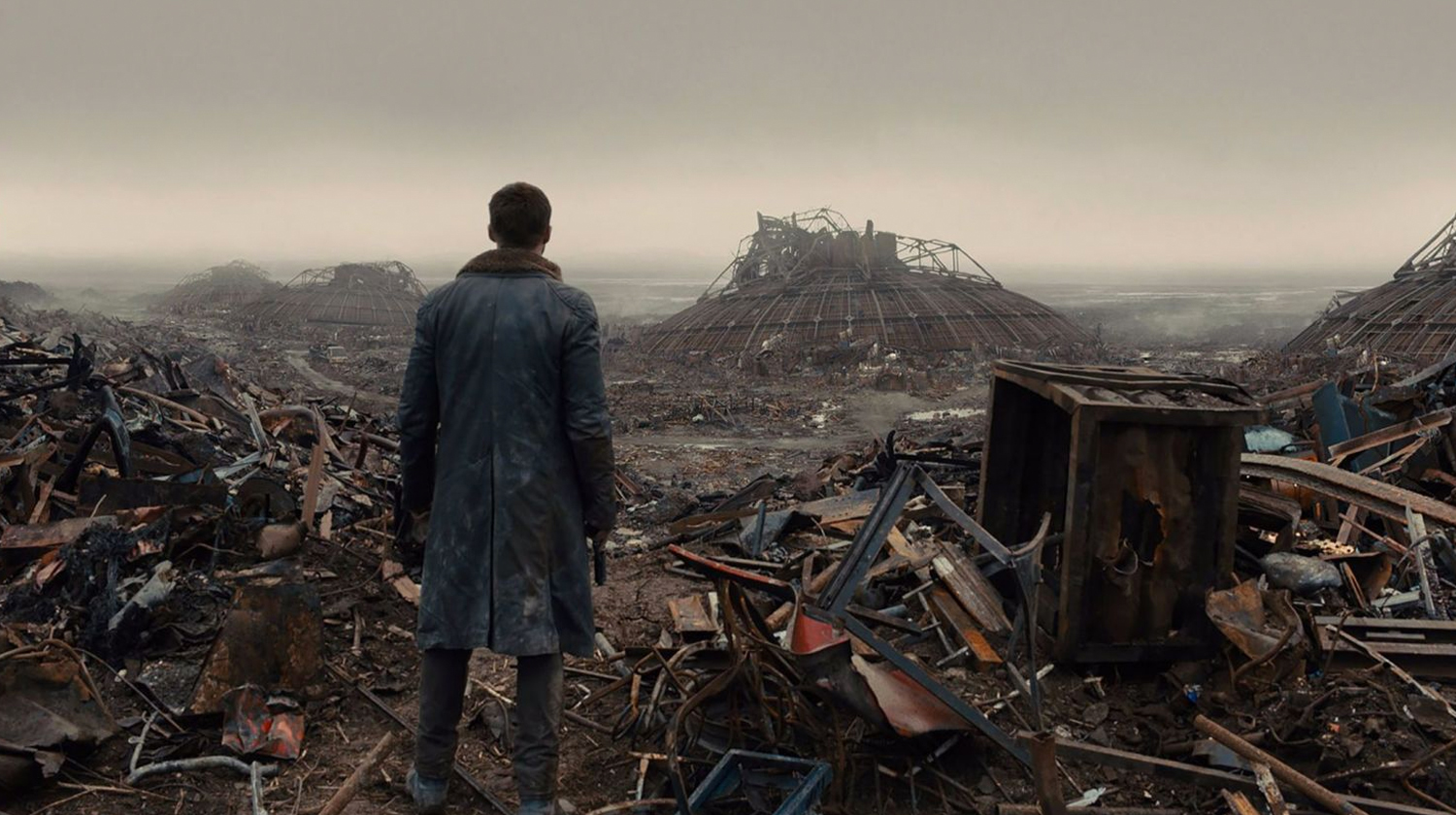See the first 'Blade Runner: Black Lotus' trailer and catch a sneak peek at the opening minutes
World building in the "Blade Runner" universe is still exciting and ripe with potential
The "Blade Runner" universe is a relatively smaller one than say, "Star Wars," "Star Trek," Marvel or DC, but that's not to say it isn't as interesting. Quite the contrary, events seen in both the original 1981 movie and the truly epic 2017 sequel have spawned a number of short films and spin-off comic books and at this year's San Diego Comic-Con@Home event, we finally saw the first trailer for "Blade Runner: Black Lotus."
First announced way back in November 2018, this is the result of a partnership between Alcon Television Group, Adult Swim and Crunchyroll and it will consist of 13, half-hour episodes that will air sometime later this year.
Created by Shinji Aramaki ("Ultraman") and Kenji Kamiyama ("The Lord of the Rings: The War of the Rohirrim," "Akira ") the series features a new protagonist, a replicant named Elle (voiced by Jessica Henwick in the English dub and Arisa Shida for Japanese), who will have a big role in how the world changes in time for "Blade Runner 2049."
Related: Why you shouldn't expect to see 'Blade Runner' replicants anytime soon

Henwick's vocal talents will be joined by the likes of Barkhad Abdi ("Captain Phillips," "Blade Runner 2049"), Josh Duhamel ("Transformers") and the legendary Brian Cox ("Succession," "Manhunter," "Braveheart," "Supertroopers").
Moreover, at the recent annual Crunchyroll Expo, the opening 60-second sequence was also shown and it looks incredible, every bit like it belongs in the "Blade Runner" universe.
There are three short films that already exist to fill the gap between "Blade Runner" and "Blade Runner 2049." "Black Out 2022" is the first and is made by anime director Shin'ichirô Watanabe, who is known for his work on "The Animatrix" and "Cowboy Bebop." This is followed by "2036: Nexus Dawn" and "2048: Nowhere to Run" both of which are made by Luke Scott (son of Ridley Scott) who is known for his short films connected to "Alien: Covenant" and "Prometheus."
Get the Space.com Newsletter
Breaking space news, the latest updates on rocket launches, skywatching events and more!
The series of events within the "Blade Runner" universe between the two movies unfolds as follows:
2018 — After a bloody mutiny by a Nexus 6 combat team in an off-world colony, Replicants are declared illegal on Earth, under penalty of death.
2019 — A prototype Replicant, Rachael, and Officer Rick Deckard, a Blade runner, escape Los Angeles together.
2020 — After the death of founder Eldon Tyrell, the Tyrell Corporation rushes a new line of Nexus 8 Replicants onto the market for use off-world. Unlike previous Nexus models, built with 4-year lifespans, the Nexus 8s have open-ended lifespans, as well as ocular implants for easy identification.
2022 — The Blackout. An EMP of unknown origin detonates somewhere in the West Coast. Cities are shut down for weeks. Electronic data is corrupted or destroyed over most of the United States. Finance and trade markets crash worldwide. Food supplies become dire. Theories spread as to the cause of the blackout, but none are proven. The most popular blame Replicants.
2023 — Replicant Prohibition. The governing authorities legislate an indefinite "prohibition" on replicant production. Nexus 6 models are now all decommissioned due to their programmed 4-year lifespans. Surviving Nexus 8 models are to be retired. Those that can, go into hiding.
2025 — Idealistic scientist Niander Wallace pioneers advancements in genetically modified food and shares his patents for free, marking an end to a global crisis. His company, the Wallace Corporation, expands across the globe and into the off-world colonies.
2028 — Niander Wallace acquires the remains of the bankrupt Tyrell Corporation.
2030s — Niander Wallace improves upon Tyrells' genetic engineering and memory implantation methods to make replicants obedient and controllable.
2036 — Prohibition is repealed. Wallace reintroduces a new line of "perfected" Replicants, The Nexus 9.
Early 2040s…The LAPD commits additional resources to bolster its existing Blade Runner unit, tasked with locating illegal Replicants and retiring them.
2048…
2049 — When we return to Los Angeles, 30 years after the original movie, climate change has caused the sea level to rise dramatically. A massive sea wall has been built to protect the city from the Pacific Ocean and San Diego is little more than a municipal waste processing plant. Los Angeles is even more uninhabitable than before and filled with poverty and sickness. Humans, who were not well enough to leave for the off-world colonies are left behind. There is no fresh food, and inhabitants survive on Wallace's genetically modified food products sold from vending machines at street markets.

What's interesting to remember here is that the future in the original actually looked pretty cool. if you like massive cities, tower blocks hundreds of stories high and a "Neuromancer"-esque lifestyle. We knew that people were leaving Earth in droves for the off-world colonies, but if Los Angeles of all places was as cool as this, then other cities would be too, right? Then…suddenly, to fit in better with current thinking, somewhere along the line it all went wrong and the planet was thrown into utter chaos — usually environment-related — and why not, it's going to affect our future without a doubt, but we didn't know this back in 1981, so it was never even considered. So, how could the story portray such a steep decline into a catastrophic "Mad Max" maelstrom of decay in just 30 years? A terrorist EMP detonation…and Replicants are the prime suspects. We suspect it was actually Daniel Ocean and an idiot with a really bad cockney accent.
In addition to "Black Lotus" and the aforementioned shorts, a number of limited series comic books also exist in the "Blade Runner" universe. There's a three-volume set called "Blade Runner 2019" made up of vol. 1 "Los Angeles," vol. 2 "Off-world" and vol. 3 "Home Again, Home Again." This will be released on September 7 and is available for pre-order here. Then there's "Blade Runner 2029" that's available as either a seven-volume print edition, or a 28-chapter Kindle edition. Finally, there's "Blade Runner: Origins," which is also a seven-volume print edition. All three of these are published by Titan Comics.
And if you're still hungry after all that, there's an eight-issue series entitled "Dust to Dust" published by BOOM! Studios in 2010 that serves as a prequel to the original "Blade Runner" movie set in the days after World War Terminus, an event briefly mentioned in the original source material "Do Androids Dream of Electric Sheep?" by Philip K. Dick. There's also some great fan-made material online, which is fun to look through.
"Blade Runner: Black Lotus" will air this Fall on both Adult Swim and Crunchyroll and the full panel from Comic-Con@Home, featuring both Aramaki (co-director), Kamiyama (co-director) and Henwick (voice of Elle) together with Joseph Chou (executive producer) and Wes Gleason (voice director) can be found here.
Follow Scott Snowden on Twitter. Follow us on Twitter @Spacedotcom and on Facebook.
Join our Space Forums to keep talking space on the latest missions, night sky and more! And if you have a news tip, correction or comment, let us know at: community@space.com.
When Scott's application to the NASA astronaut training program was turned down, he was naturally upset...as any 6-year-old boy would be. He chose instead to write as much as he possibly could about science, technology and space exploration. He graduated from The University of Coventry and received his training on Fleet Street in London. He still hopes to be the first journalist in space.










